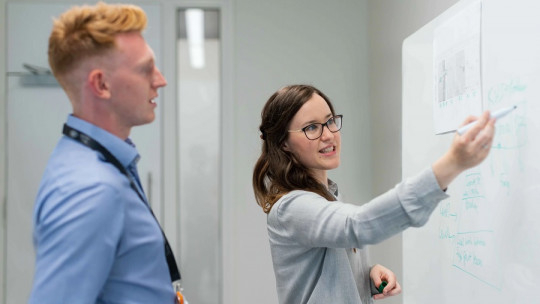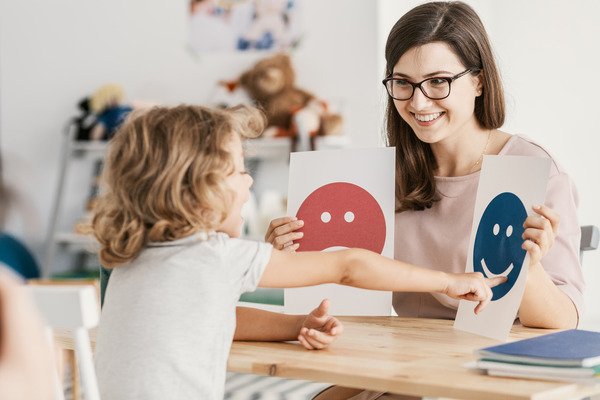The types of social skills that exist are an example of the importance for us of the need to communicate and understand each other.
Throughout our daily lives we are forced to face a series of social situations in which we must interact with other people. Whether we like it or not, we have evolved to live in relatively large groups and communities; Our features are not those of an animal adapted to life in solitude and proof of this is the constant use of the main technology that we have developed: language.
To effectively resolve each of these situations, people must implement what are known as social skills.
These abilities allow us to relate to others and resolve situations and conflicts in our interaction with others. Furthermore, there are different types of social skills which are classified according to their complexity and according to the functions they perform.
What are social abilities?
At the moment there is no single consensus within the world of psychology to define the concept “social skills” in a unique and equal way. However, if we take into account both their characteristics and their functions, we can define social skills as the set of tactics or behavioral maneuvers that people learn naturally and that They are used in situations of interaction with other people with the aim of resolving a social situation successfully.
That is to say, social skills are the behavioral patterns that we adopt to achieve objectives that have to do with how we develop in relationships with others. For example, they help us to have help when we need it, they allow us to make ourselves known in the way we want to be seen, they make it possible for us to be taken into account when looking for someone to take care of tasks for which we are qualified , and in general, they make it easier for us to become respected members of society, and understood in our circles of friends and our family context.

The fact that these skills are not innate, but learned spontaneously or with the help of others throughout our lives, makes them susceptible to being trained and improved through the use of social skills learning techniques. That is why many times, one of the objectives of psychotherapy is to help people improve their social skills; Ultimately, by enhancing these skills, it increases the ease with which the patient create bonds with others and begins to benefit from their support and the mentally stimulating experiences that social interactions provide.
These abilities are also observed in the animal world. In nature we can observe communication and relationship skills between members of the same animal species; these capabilities are analogous to what we know as social skills.
Finally, as a summary, All types of social skills have a series of characteristics in common that distinguish them from other variants of specifically human abilities. These features are:
Types of social skills
There are different ways to group the different types of social skills depending on the classification criteria used. In this case, we are going to stick to the classic classification of social skills, within which there are 6 different sets, as we will see.
It is necessary to add that all these categories are modulated by two basic attitudes when establishing interpersonal relationships. These skills are assertiveness and empathy which have the ability to condition the rest of the skills that we will see below in this summary of the types of social skills.
1. Basic social skills
They are the first to be acquired, being essential when generating and maintaining satisfactory communication in most areas of life. These include:
2. Advanced social skills
Once the person has acquired basic social skills, they have the necessary basis to work on advanced social skills, which provide us with strategies to manage properly in social relationships. This category of types of social skills includes the following skills:
3. Affective social skills
These types of skills are related to the ability to identify and manage, effectively, both our feelings and the feelings of others. Within this category is:
4. Negotiation skills or alternatives to aggressiveness
Social skills related to negotiation are those that allow us to avoid conflict or manage it appropriately. They consist of the ability to solve problems within interpersonal relationships without using aggressiveness or violence. These are:
- Know how to ask for permission.
- Shareability.
- Ability to help others.
- Ability to love oneself.
- Ability to tolerate and respond to jokes.
- Negotiation skills.
- Self-control capacity.
- Ability to defend one’s own rights.
- Don’t get into fights.
- Ability to avoid problems for other people.
5. Stress coping skills
These types of skills are necessary for successful conflict resolution in contexts of tension or stress. Within this group are:
- Ability to manage the feeling of shame.
- Ability to defend the other.
- Tolerance for failure.
- Ability to respond to persuasion.
- Ability to respond to an accusation.
- Ability to make complaints or claims.
- Ability to respond to complaints or claims.
- Sportsmanship.
- Know how to deal with group pressure.
- Manage a complicated conversation.
- Tolerance to being ignored or disdained.
- Ability to confront contradictory messages.
6. Planning skills
These types of social skills have to do with how we project ourselves into the future by creating strategies to solve problems through relationships with others. Within the category of social skills related to planning we can find:
- Recognition of one’s own abilities.
- Ability to make decisions.
- Determination of objectives.
- Identify the cause of the problems and resolve them.
- Information collection.
- Ability to concentrate on a task.
The benefits of social skills
Good development of social skills allows us to express our emotions and feelings in an appropriate and satisfactory manner. In the same way, it also gives us the possibility of expressing our opinions and thoughts in a manner consistent with the situation we are experiencing.
Thanks to them, we enjoy favorable and positive interpersonal relationships; we feel better about ourselves and They facilitate the achievement of our goals in our social life.
On the other hand, the fact that there are different types of social skills allows us to develop socialization strategies and create agreements and friendship relationships that adapt to our personality and abilities. In other words, by being able to develop those that best fit our way of life and our preferences, we can allow ourselves to create relationships on our own terms, without having to all conform to the same requirements for having friends, finding a partner. , etc.









